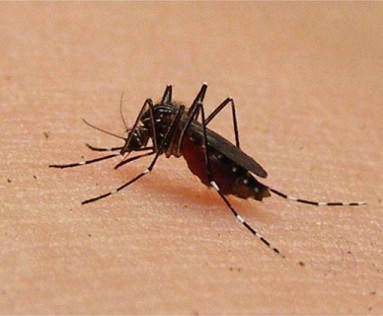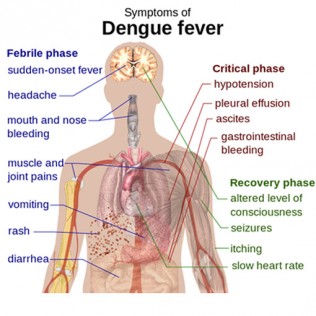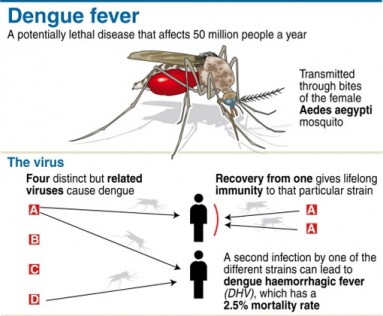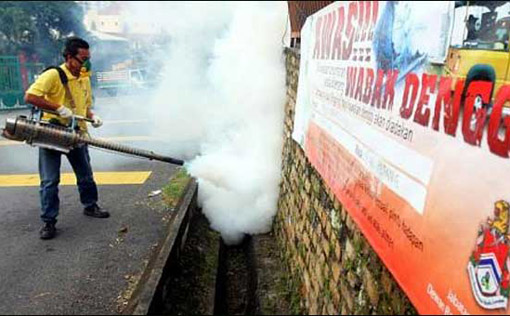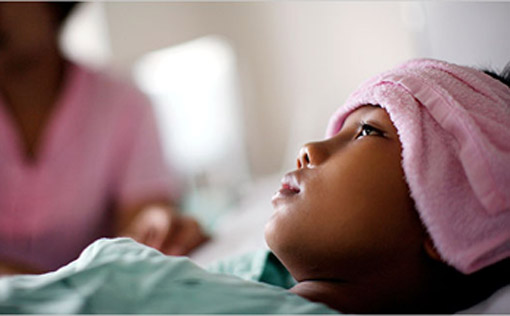
Health Ministry announced that there has been a 248% spike in dengue cases following the dry spell in Klang Valley.
As of June 21, 82 people have died of dengue nationwide, which is a 228% increase compared to the 25 recorded over the same period last year.
According to Health Minister Dr. S. Subramaniam, the total number of reported dengue cases throughout the country this year rose to 42,229 cases compared to 12,143 for the same period last year.
Hospitals including private medical facilities are having hard time coping with people seeking treatment for dengue, to an extent that some patients had to wait almost six hours before they can be admitted after being diagnosed with this life threatening fever.
Association of Private Hospitals of Malaysia (APHM) president Datuk Dr Jacob Thomas said private hospitals had been able to cope with the demand and no patients have been turned away so far, reported The Star Daily.
Dengue fever: Simplified
The fever is transmitted to humans by the bite of an infected Aedes mosquito (Aedes aegypti and Aedes albopictus).
Dengue fever is not contagious and does not spread directly from person to person. A mosquito is infected when it takes a blood meal from a dengue-infected person and later transmits the virus to other people they bite.
Symptoms include as severe joint and muscle pain, swollen lymph nodes, headache, fever, exhaustion, and rash. The presence of fever, rash, and headache is characteristic of dengue fever.
Dengue hemorrhagic fever (DHF) is a specific syndrome that tends to affect children under 10 years of age. It causes abdominal pain, hemorrhage (bleeding), and circulatory collapse (shock).
The prevention of dengue fever requires control or eradication of the mosquitoes carrying the virus that causes dengue.
Dengue Symptoms
Dengue fever usually develops within 4 to 7 days after being bitten by an infected mosquito.
Symptoms of dengue infection are as follows:
– Sudden onset of continuous high fever for about 2 to 7 days.
– Red rashes on skin.
– Severe headache with retro-orbital (behind the eye) pain.
– Acute pain in bones, joint, stomach and muscles.
– Nausea and vomiting.
– Bleeding from nose or gums or easy bruising in the skin.
– Loss of appetite.
– Depression.
What to do if you think you have dengue?
– Seek a doctor for medical treatment immediately.
– Monitor body temperature from time to time.
– Use pain relievers with acetaminophen and avoid medicines with aspirin.
– Drink plenty of fluids to rehydrate.
– Have ample rest.
Control and preventive measures
– Cover all water containers to prevent mosquitoes from breeding.
– Change water in the vases, pot bases and water containers and clean thoroughly every week.
– Clean drainage pipes, blockages and put BTI insecticide in roof gutters monthly
– Remove water from items, such as unused tyres, empty cans and bottles to prevent them from becoming breeding grounds for Aedes mosquitoes.
– Add adequate amount of larvacide (TEMEPHOS- 10 grams per 20 gallons) into water storage to kill larvae every three months.
– Use aerosol spray or conduct fogging activities at home to kill and repel Aedes mosquitoes.
– Install screen on windows to prevent from mosquitoes bite.
Treatment
Treatment for dengue is supportive. In severe cases, you may require hospitalisation and aggressive emergency treatment with fluid and electrolyte replacement or blood transfusions.
Vaccine tests are still being carried out but appropriate medical care frequently saves the lives of patients. See a doctor immediately for diagnosis and treatment if you experience symptoms of dengue fever.
Dengue fever facts
Dengue fever is a disease caused by a family of viruses that are transmitted by mosquitoes.


